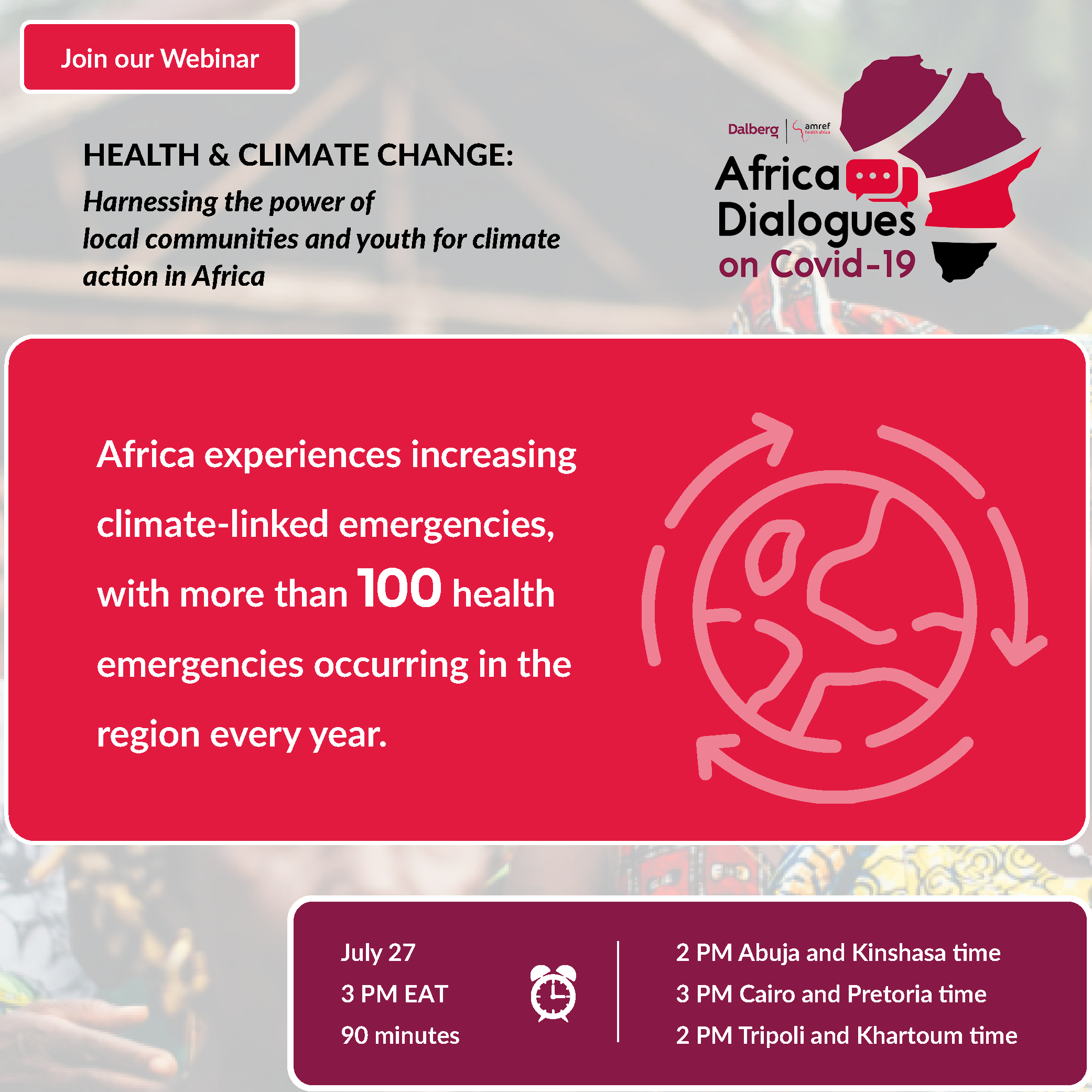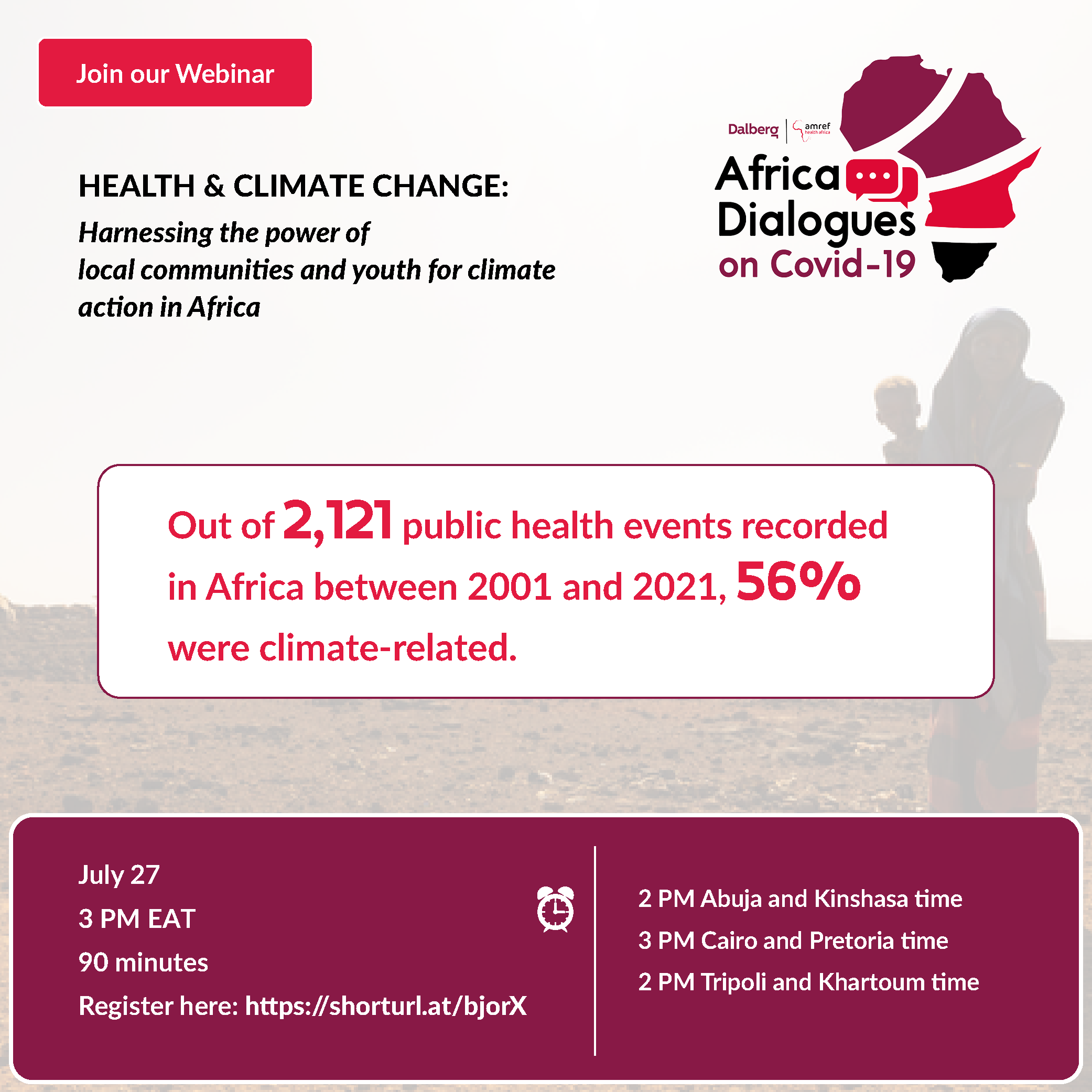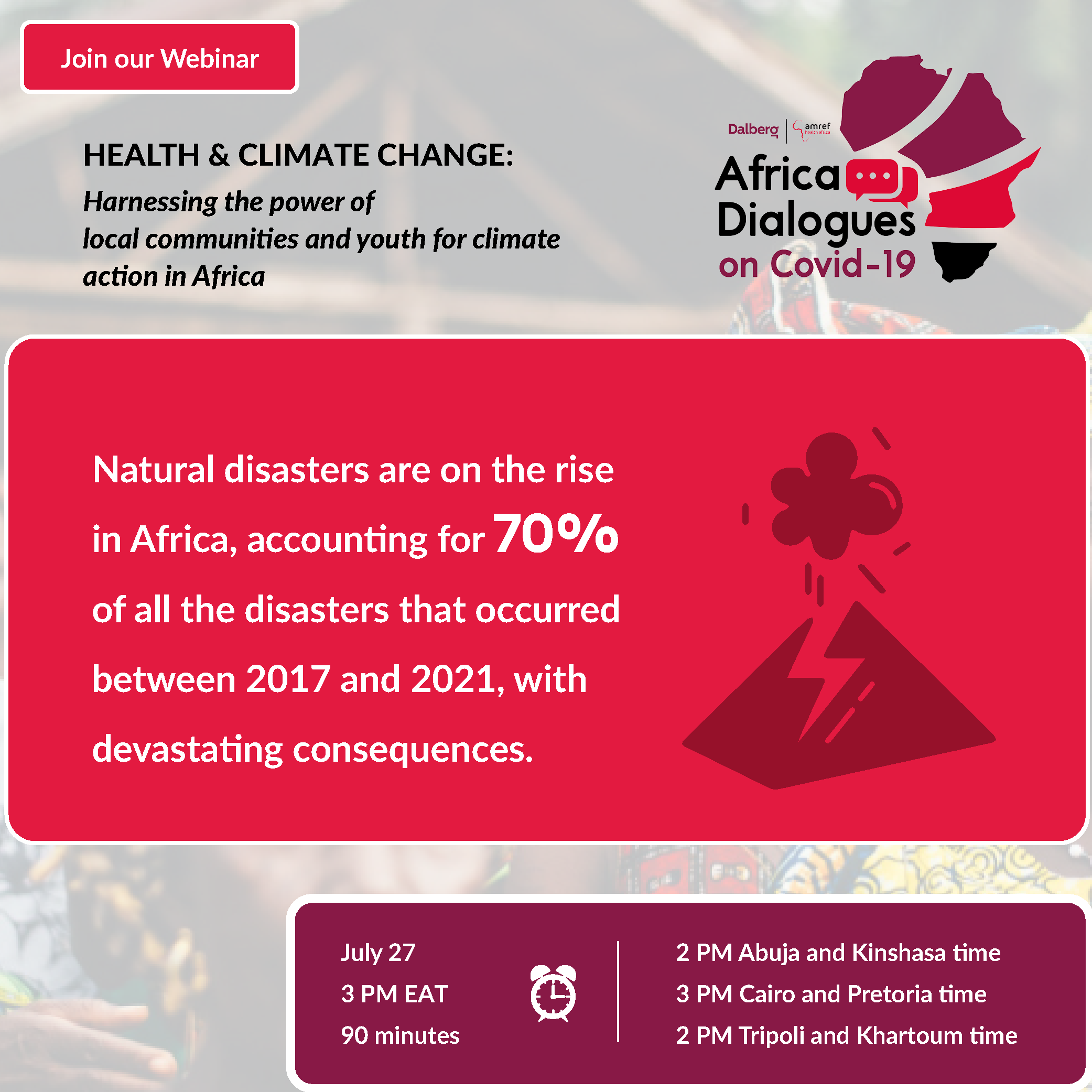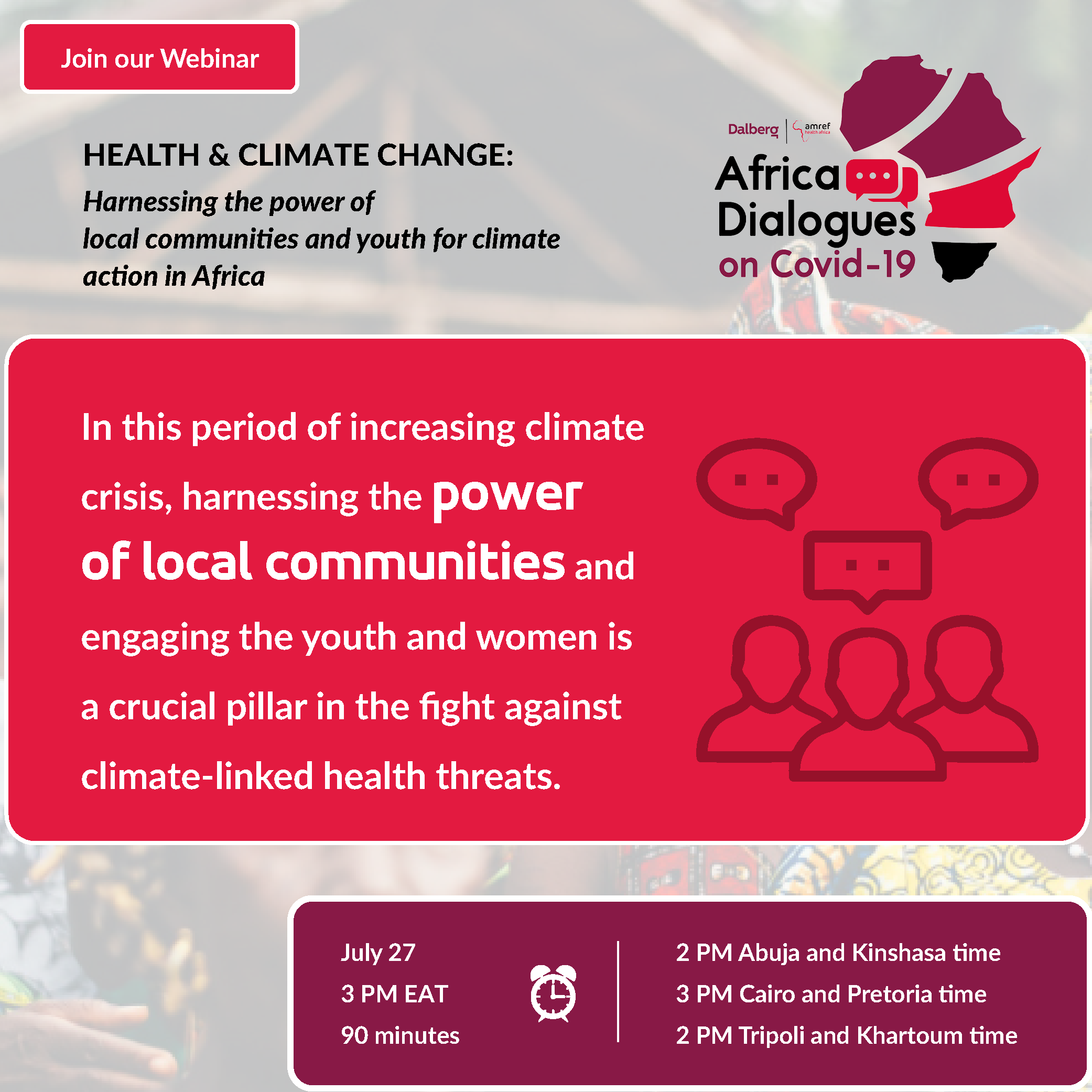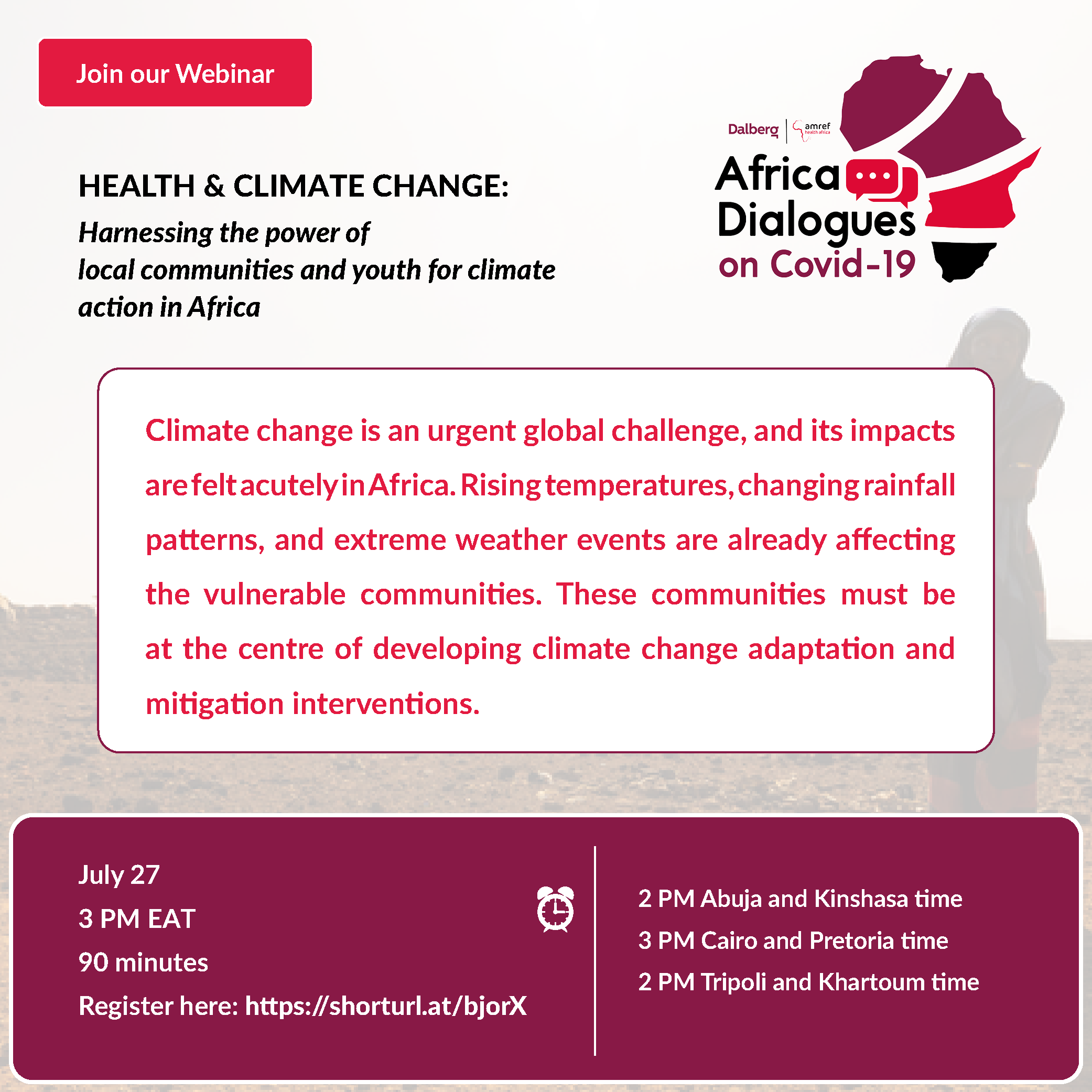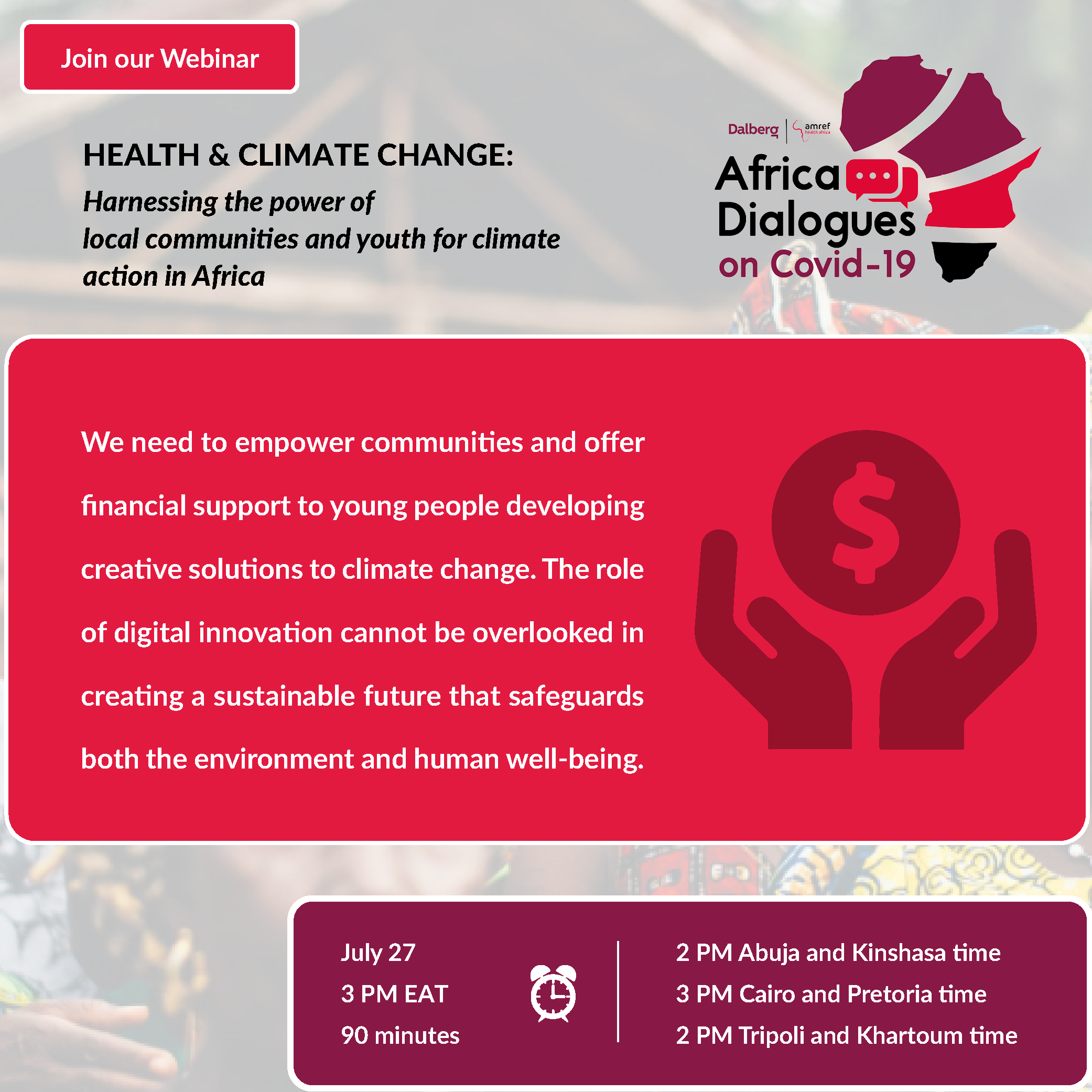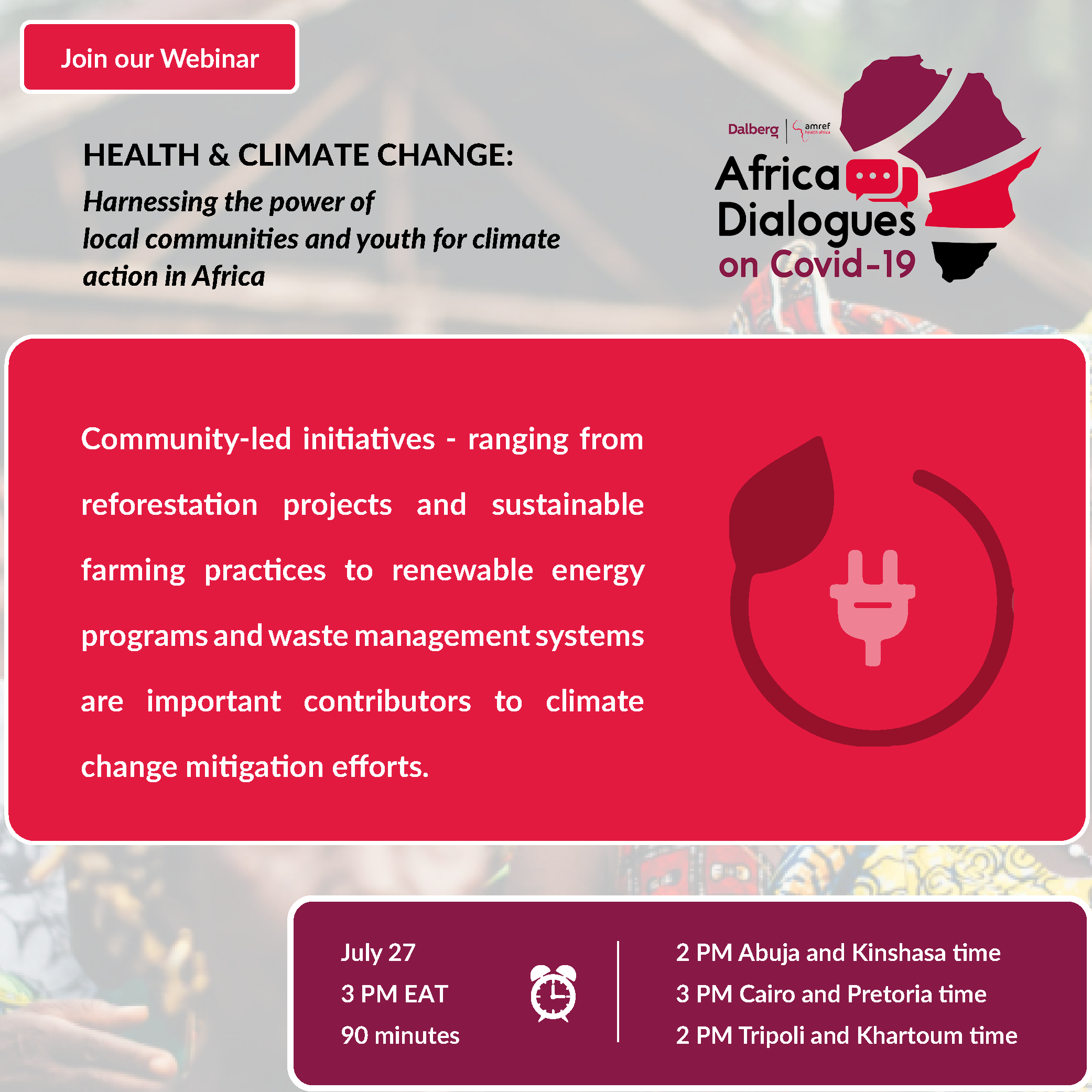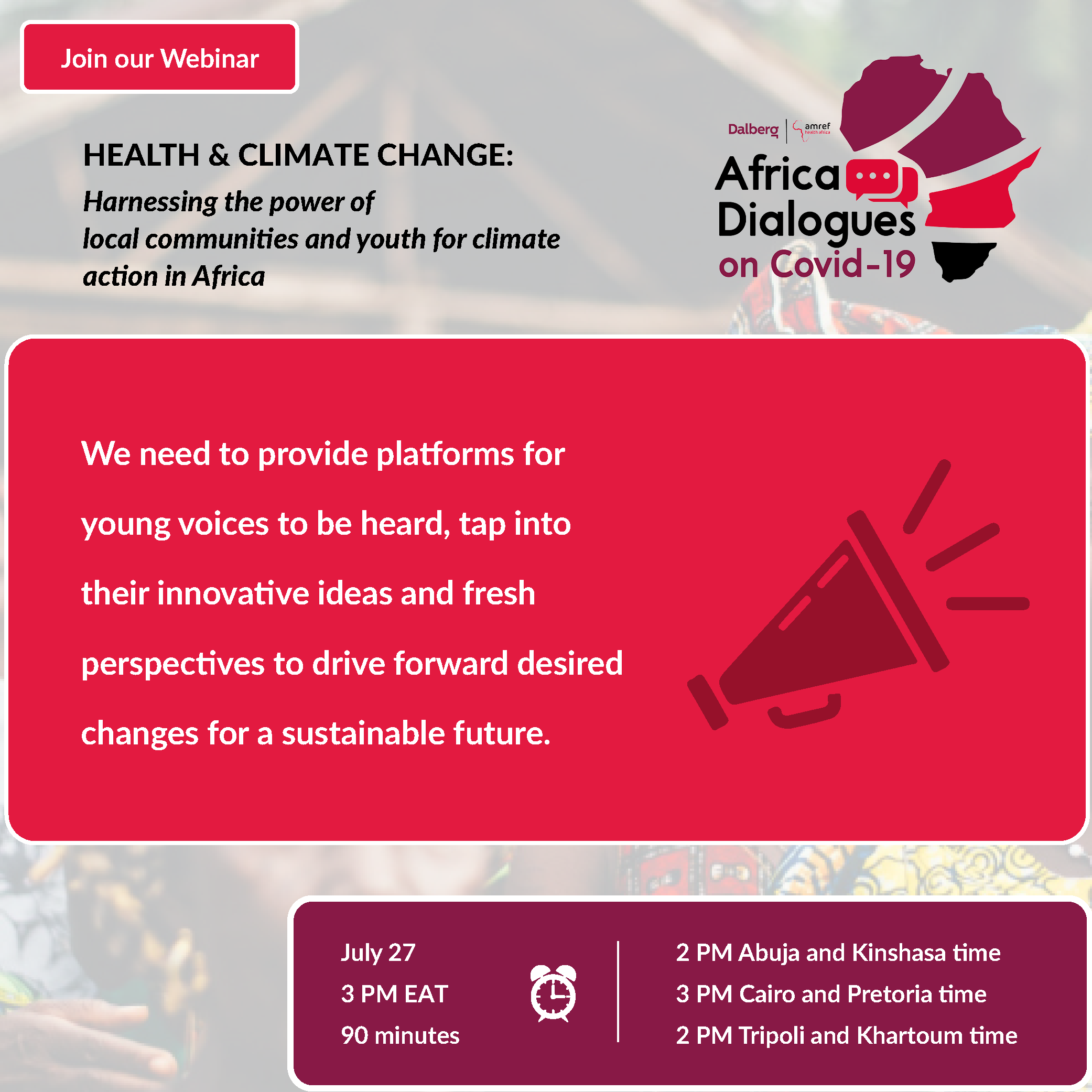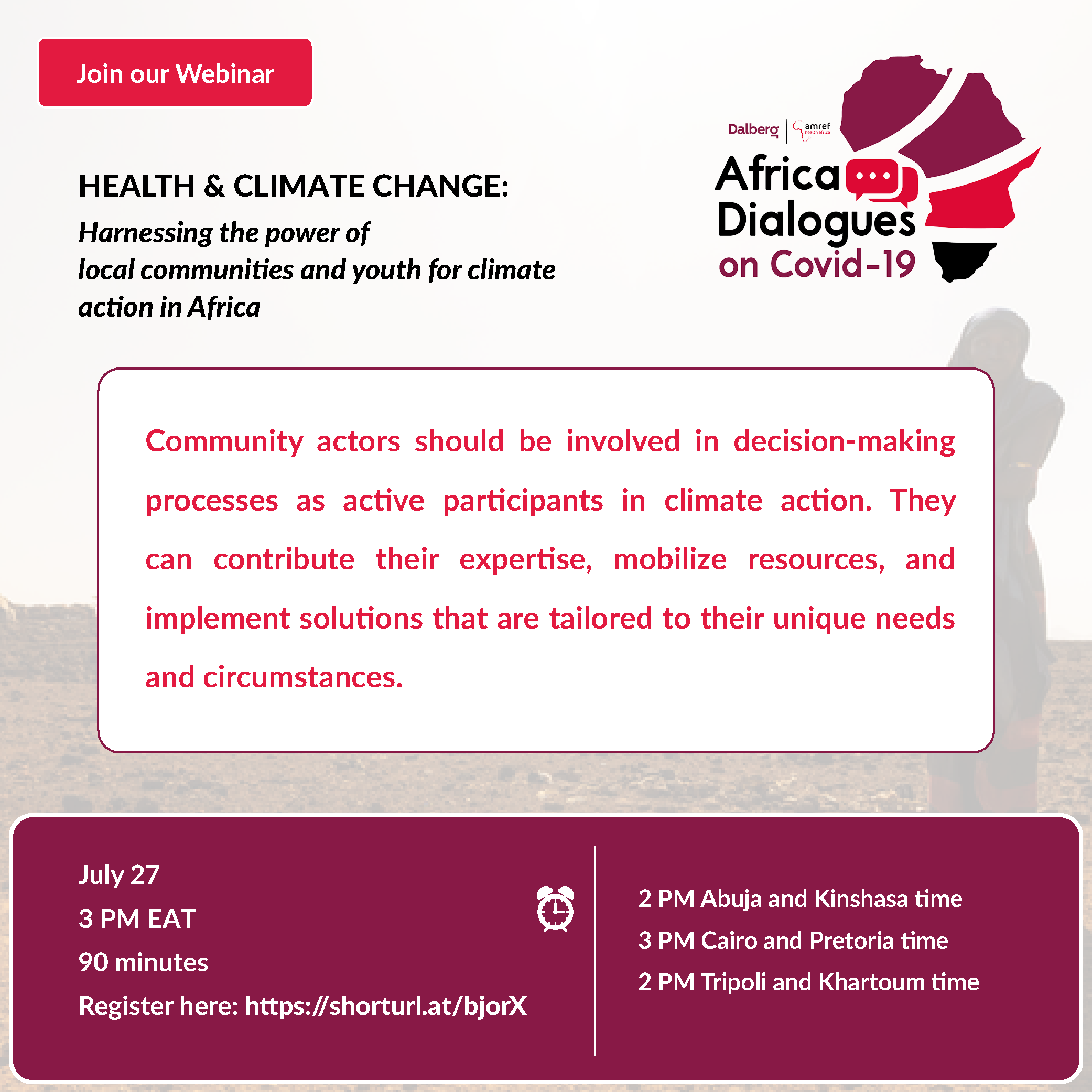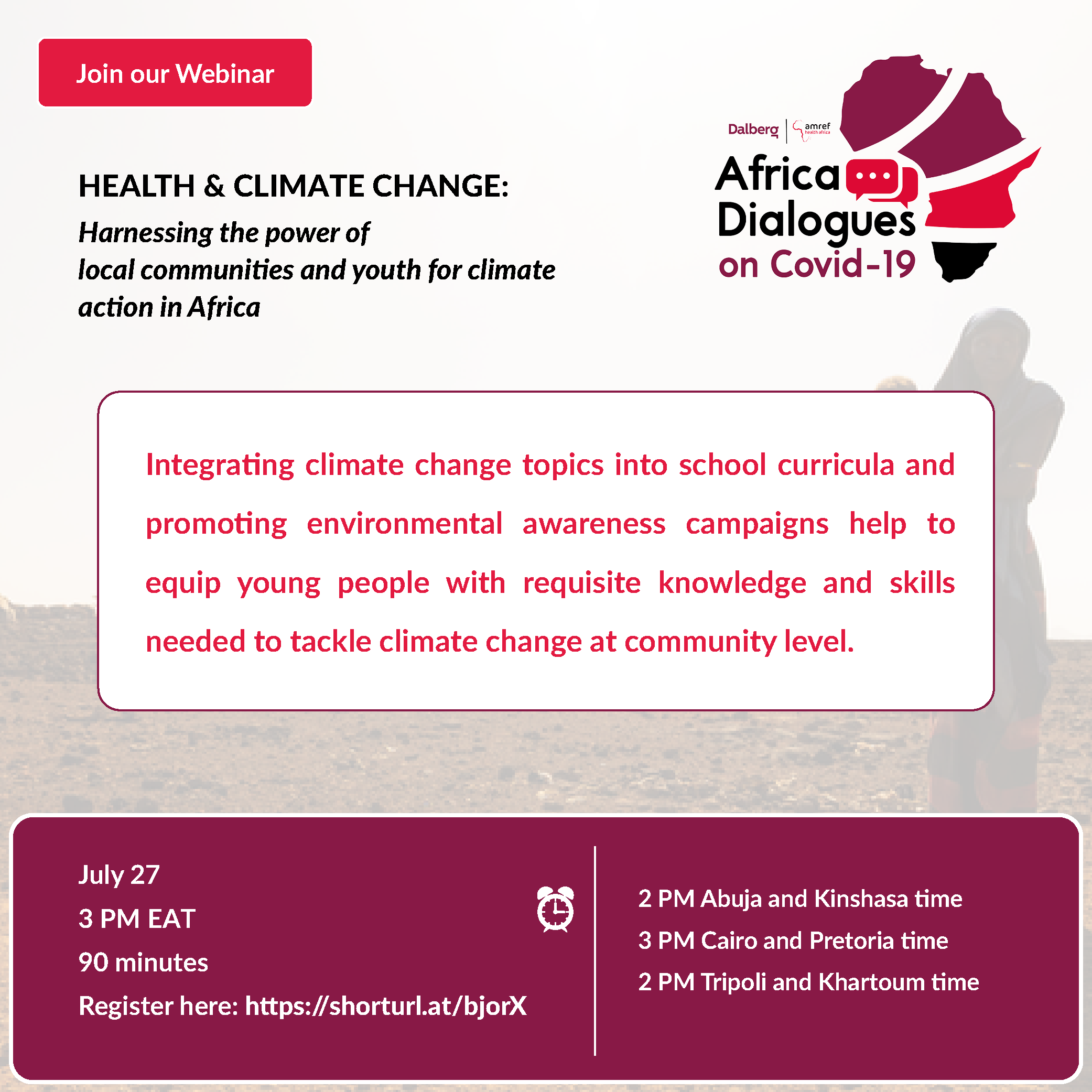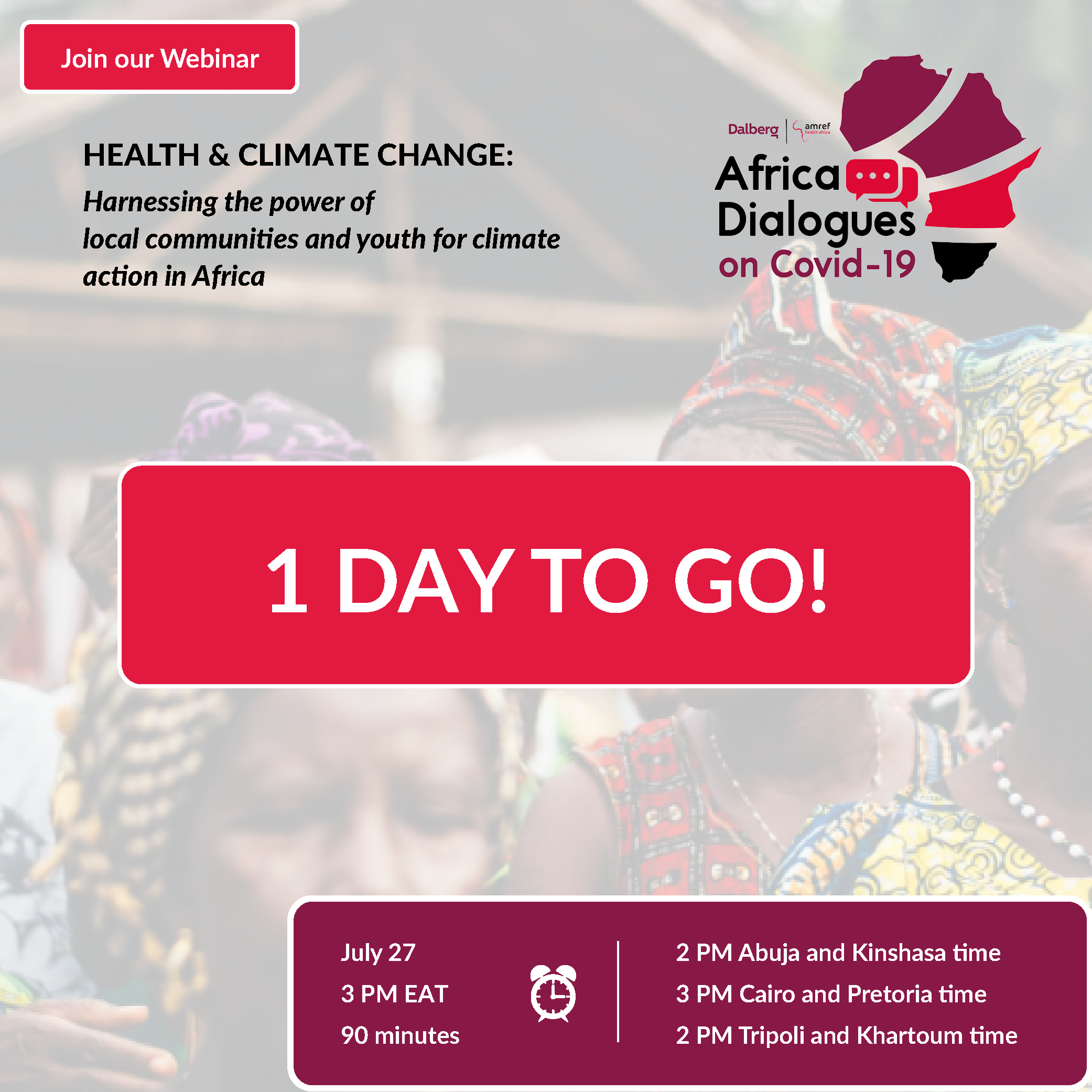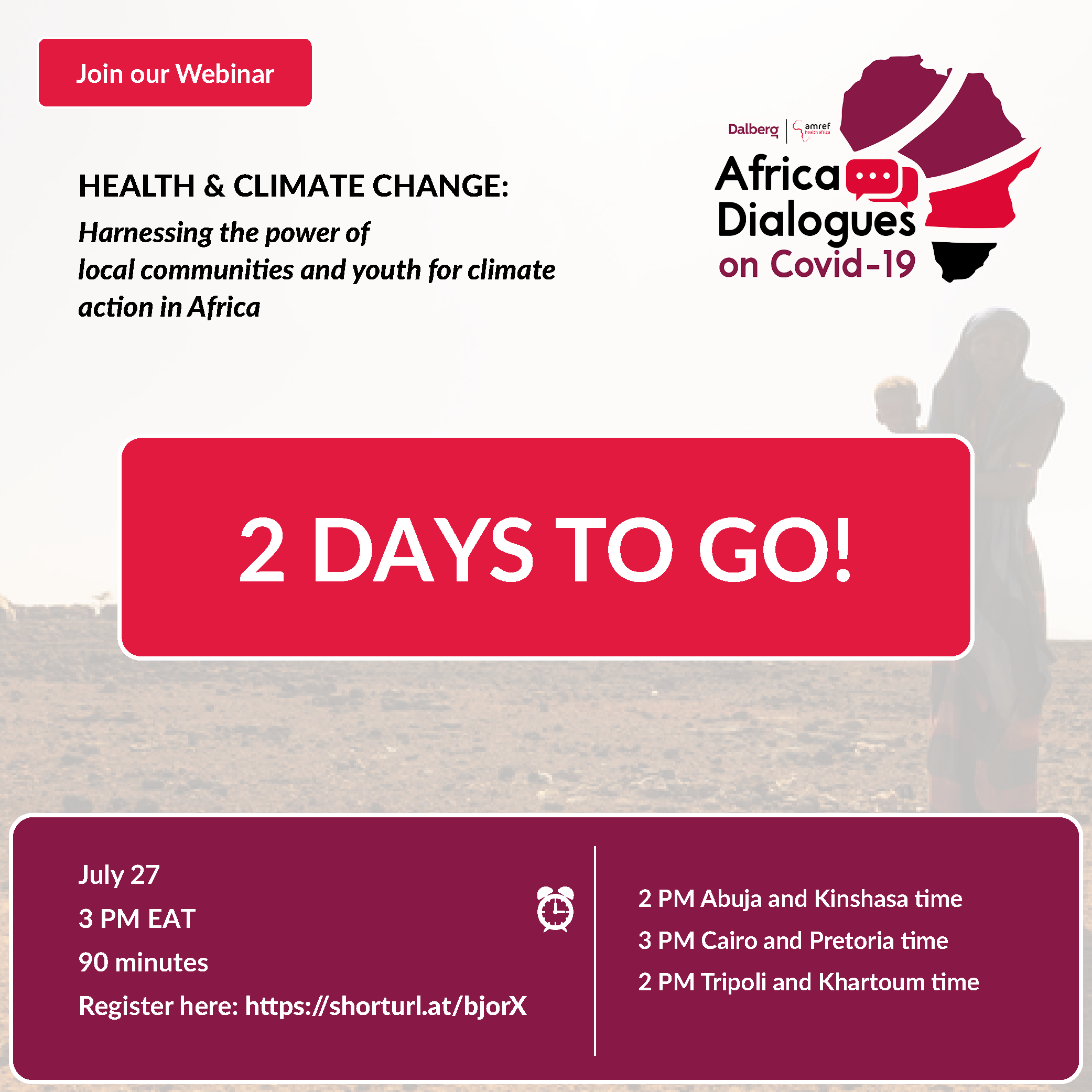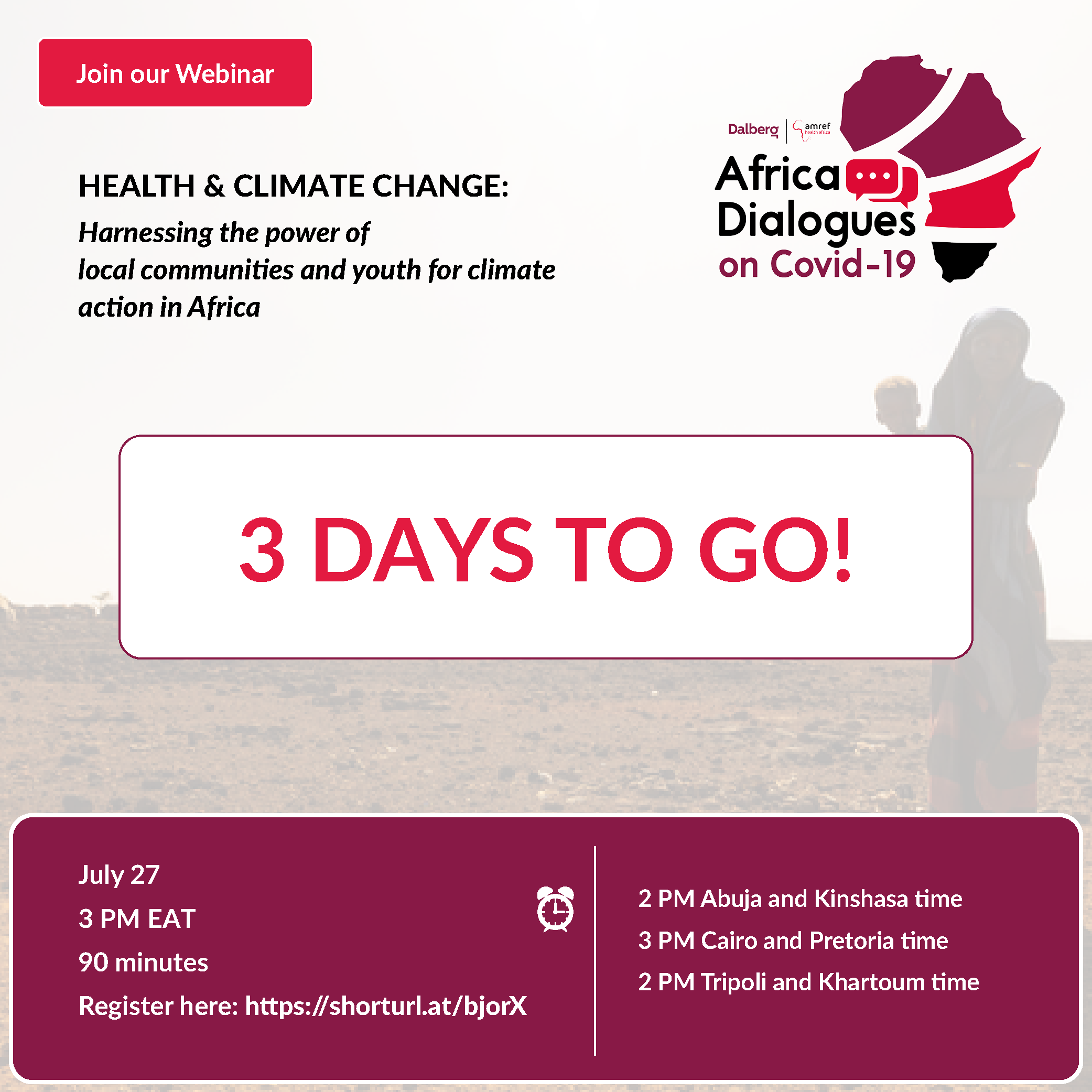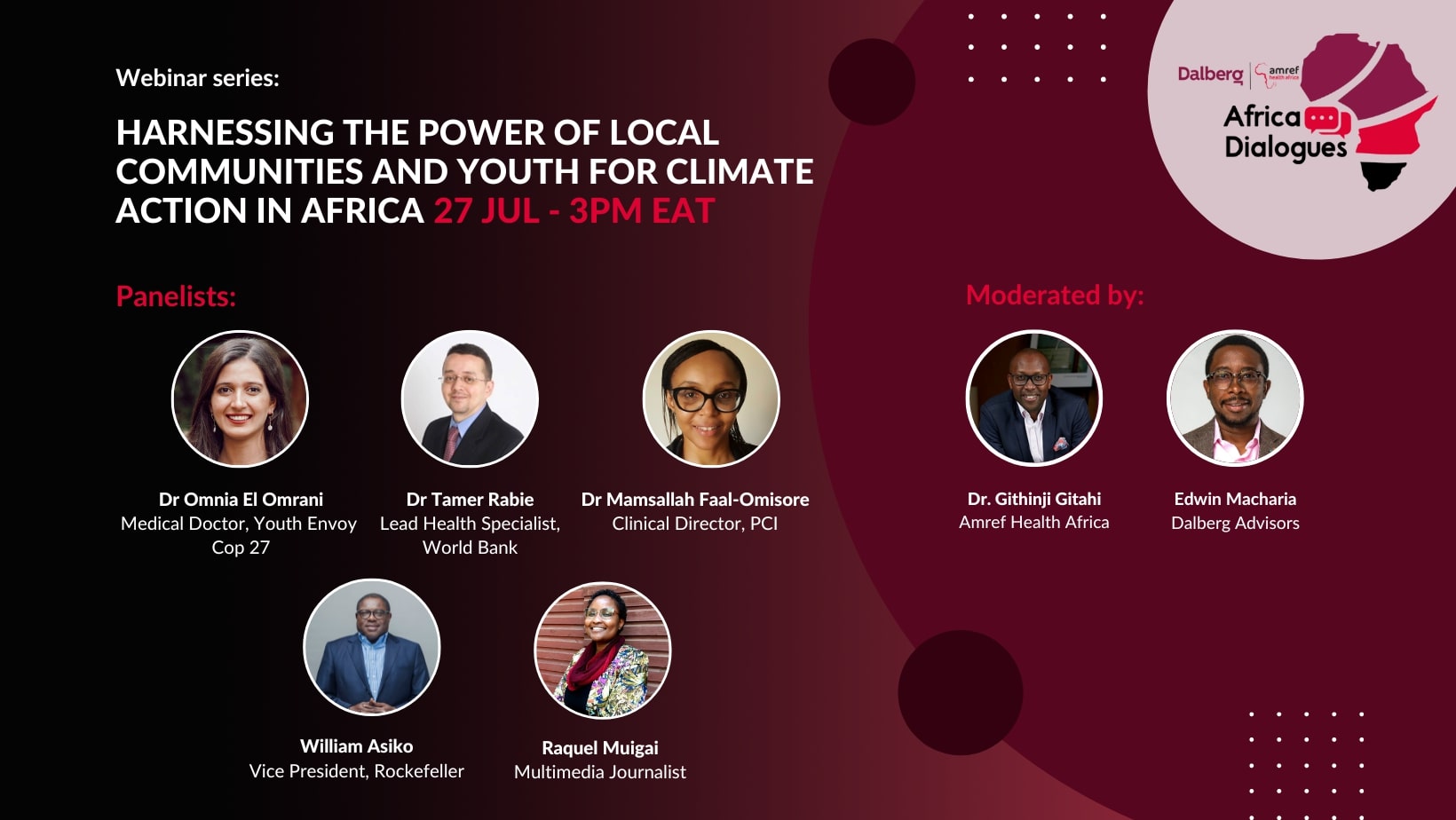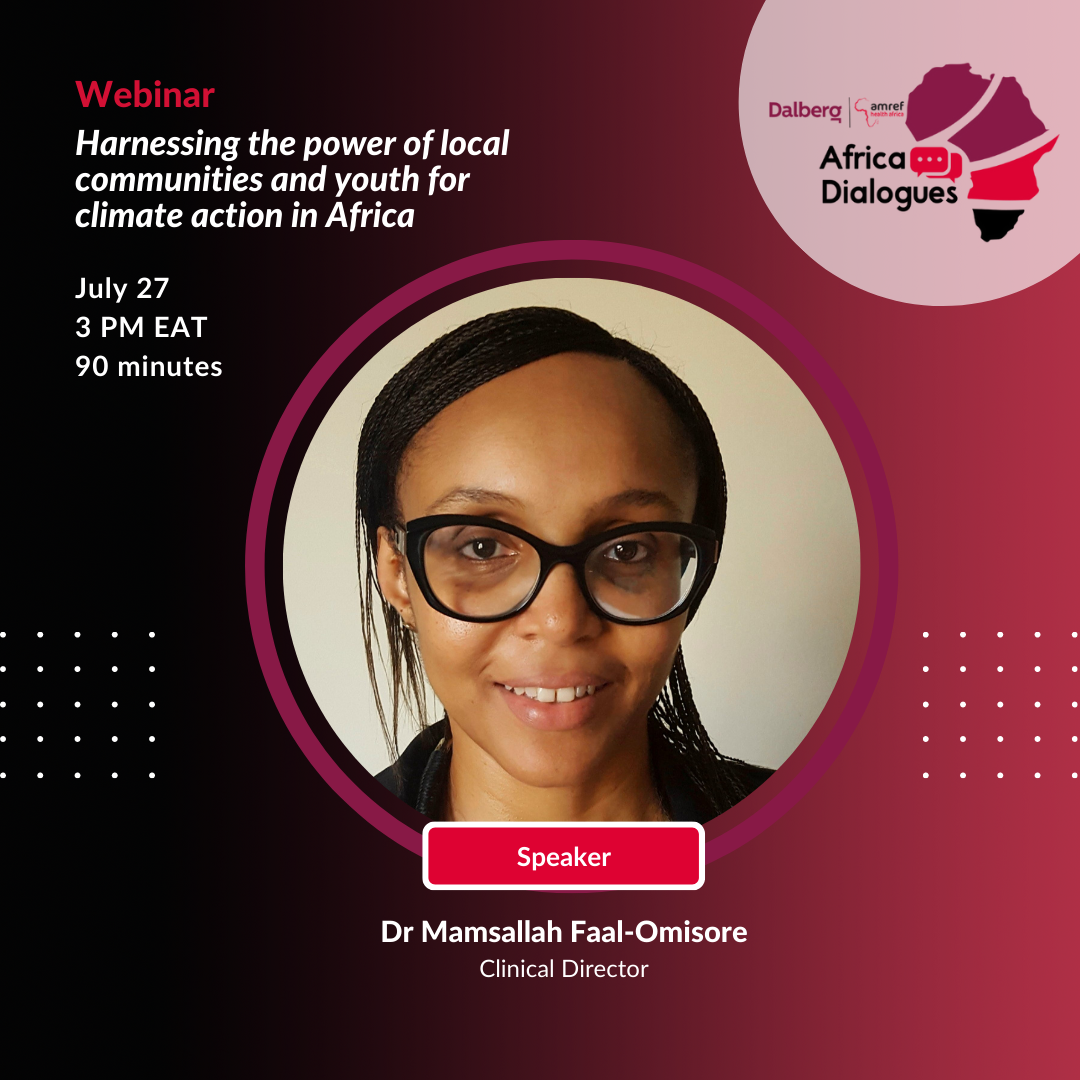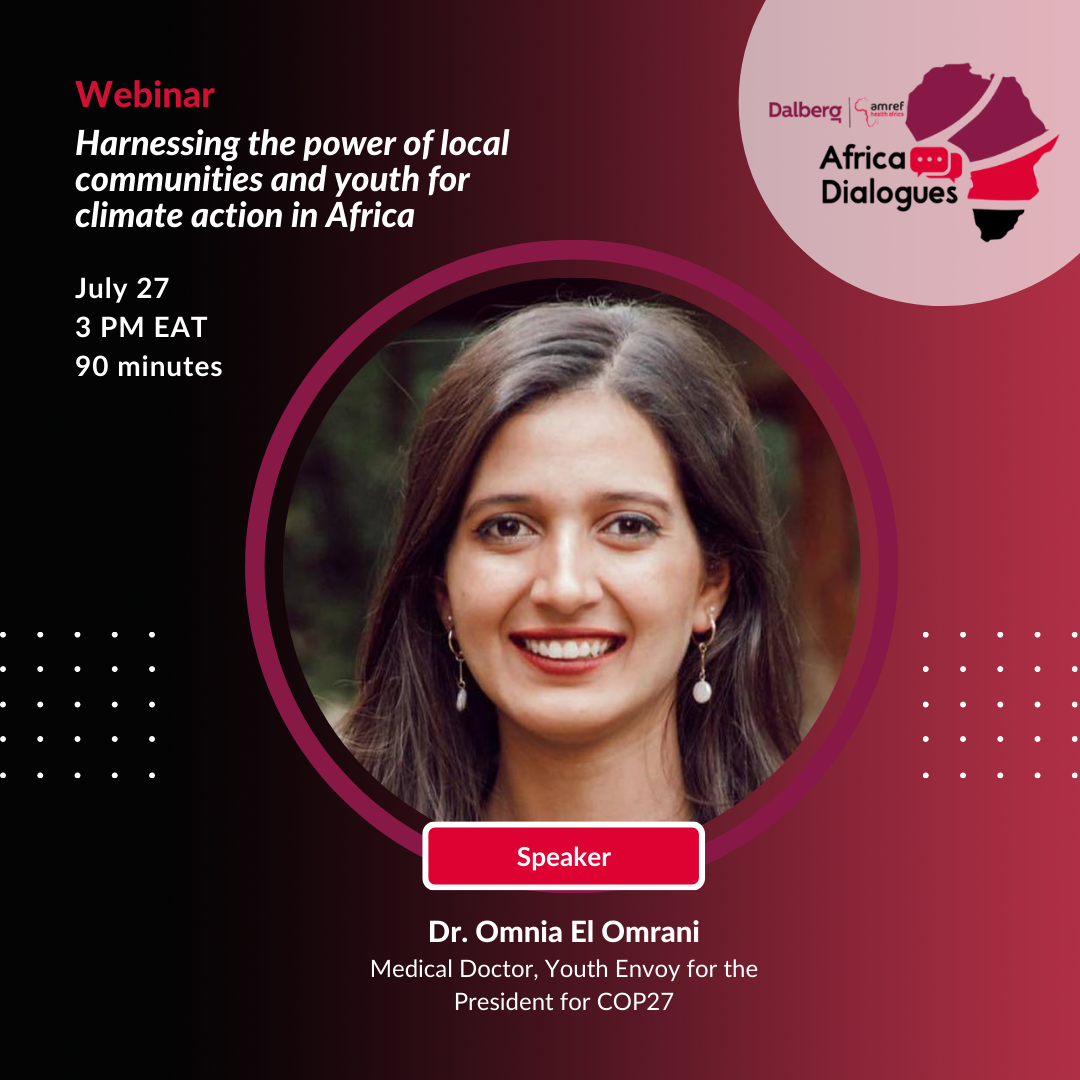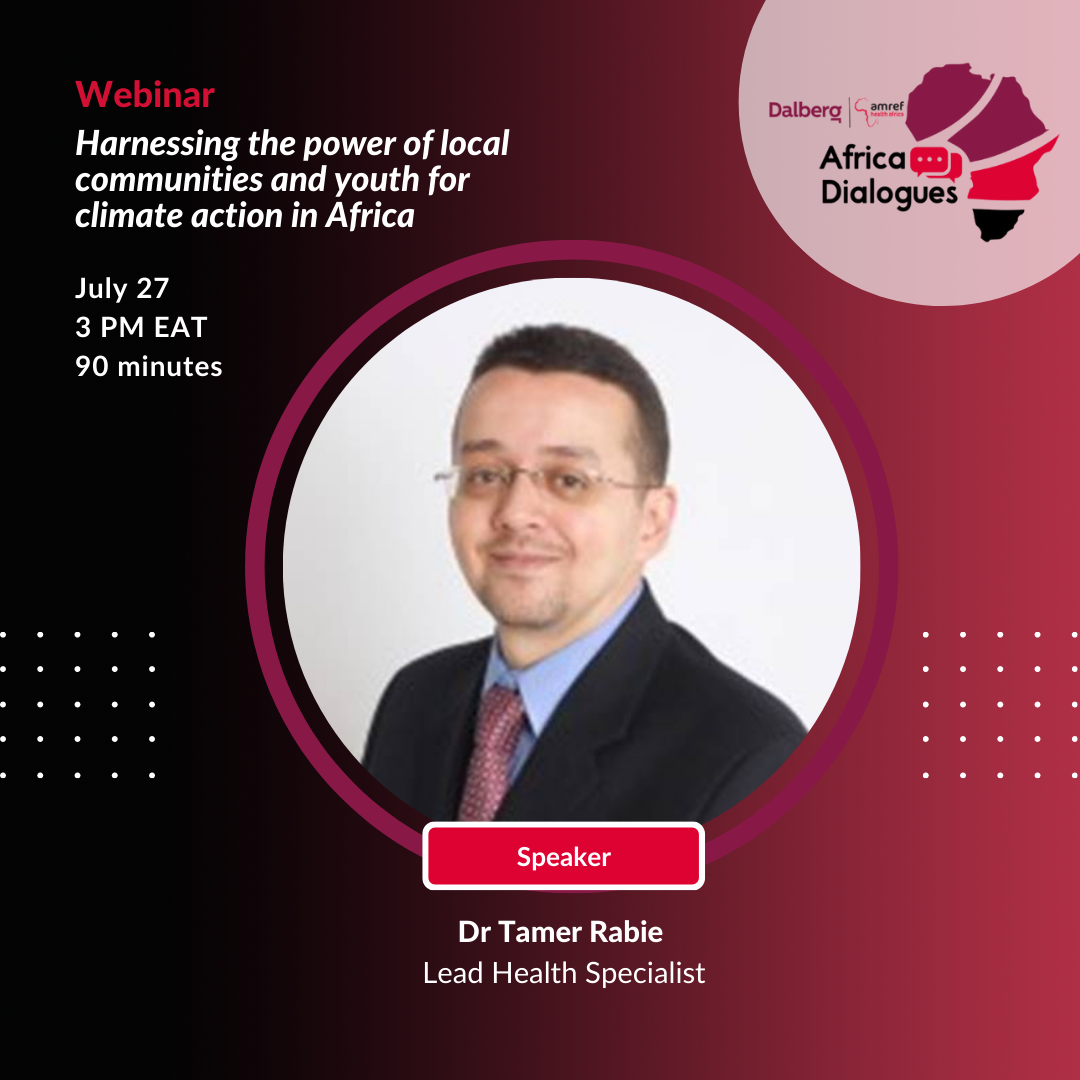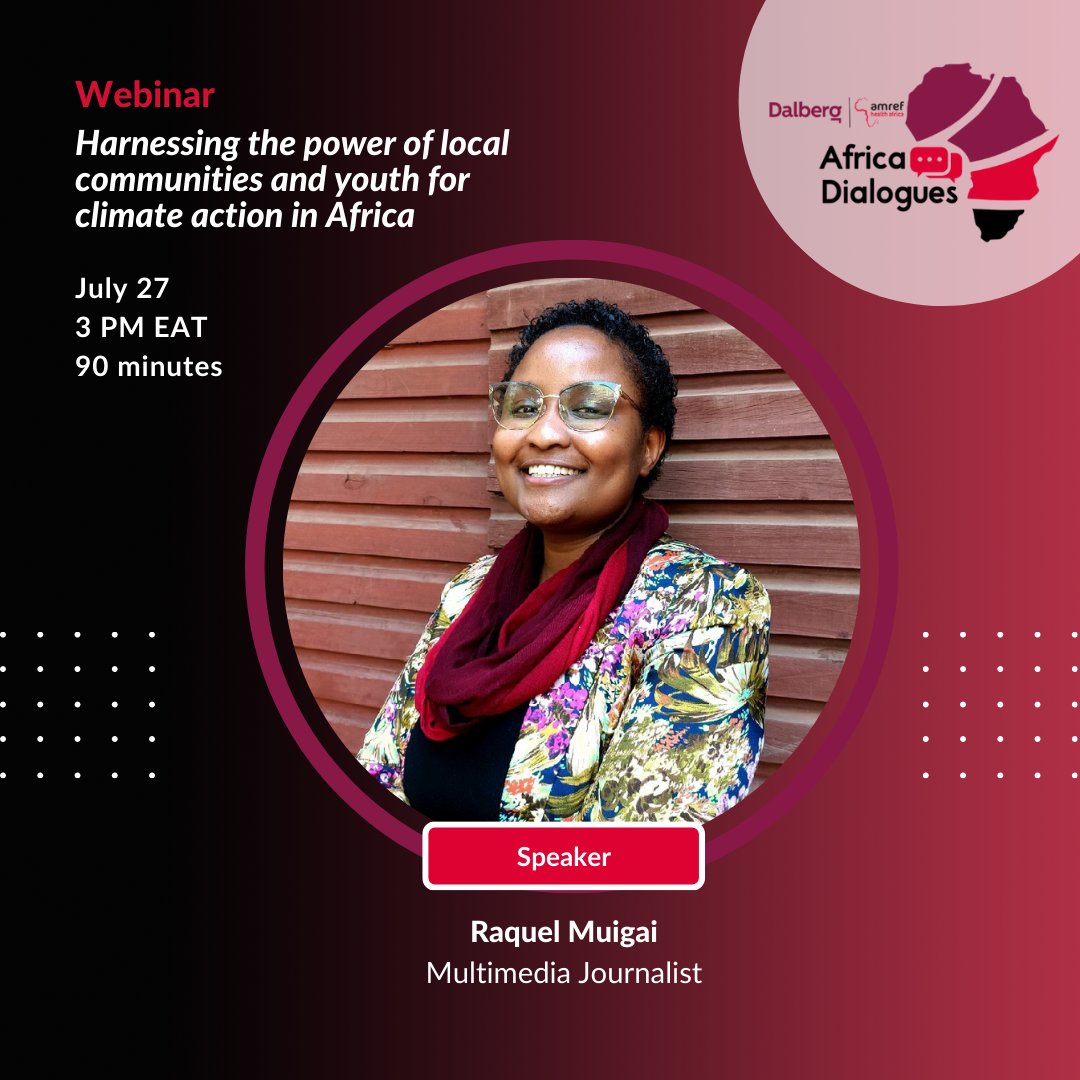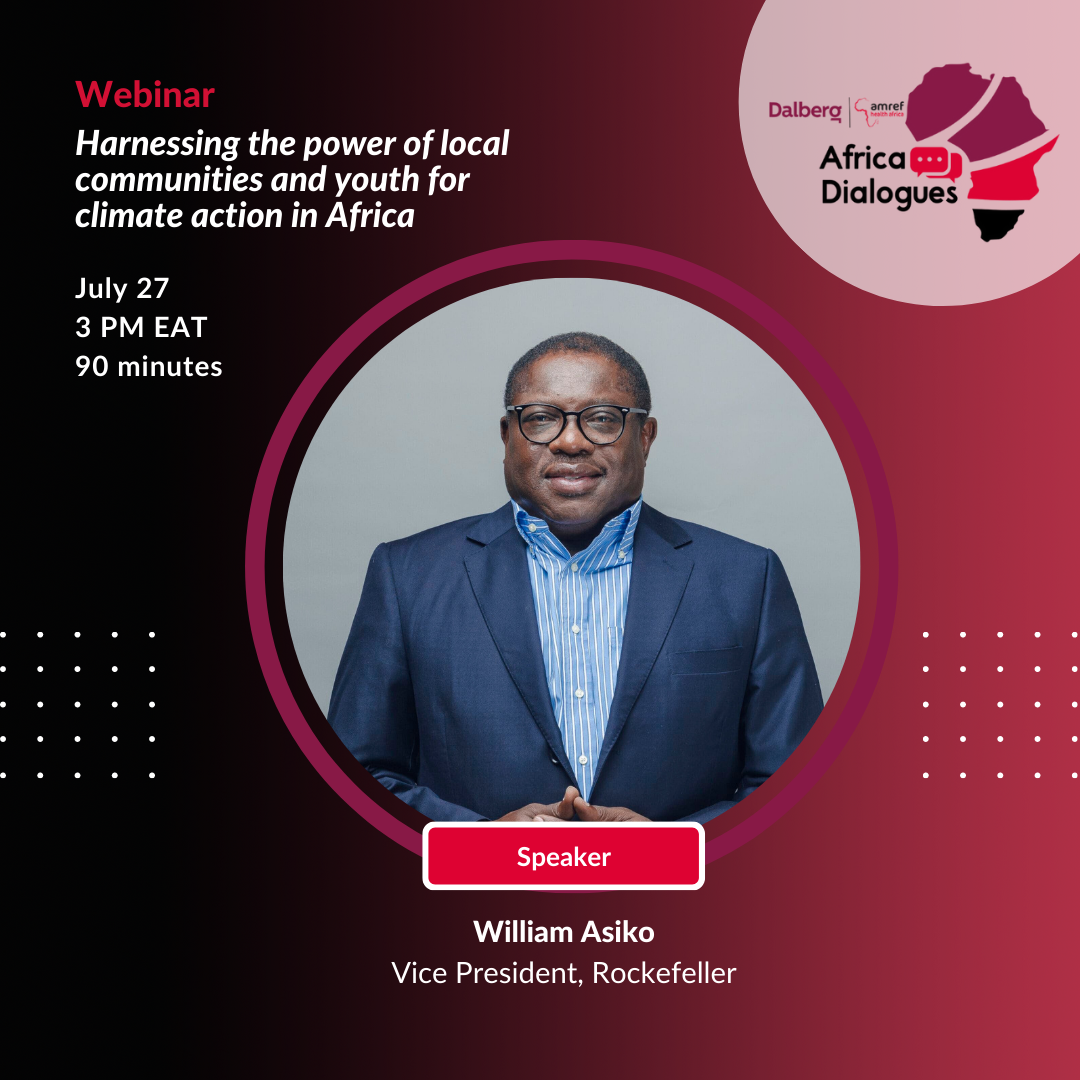Africa Dialogues
Harnessing the Power of Local Communities and Youth for Climate Action in Africa
Jul 27, 2023 03:00 PM (EAT)
Climate change is a health crisis – it poses one of the most significant threats to global health, and urgent collective action is needed to tackle the challenge. To find solutions, we must involve diverse perspectives, and elevate some of the voices that are often ignored but are worst affected by impacts of climate change in Africa.
Share facts about #AfricaDialogues
These communication tools are available to share and print during the Africa Dialogues Webinar. Feel free to display and/or distribute on social media. On Twitter please tag @Amref_Worldwide when posting graphics from this social media toolkit.
# Hashtags
#AfricaDialogues
Key Messages and Tweets
Climate change is an urgent global challenge, and its impacts are felt acutely in Africa. Rising temperatures, changing rainfall patterns, and extreme weather events are already affecting the vulnerable communities. These communities must be at the centre of developing climate change adaptation and mitigation interventions.
In this period of increasing climate crisis, harnessing the power of local communities and engaging the youth and women is a crucial pillar in the fight against climate-linked health threats.
We need to empower communities and offer financial support to young people developing creative solutions to climate change. The role of digital innovation cannot be overlooked in creating a sustainable future that safeguards both the environment and human well-being.
Local communities have a deep understanding of their surroundings, including traditional knowledge about weather patterns, agriculture, and natural resource management. Recognizing and respecting the rich knowledge is vital for developing effective climate change strategies.
Community-led initiatives - ranging from reforestation projects and sustainable farming practices to renewable energy programs and waste management systems are important contributors to climate change mitigation efforts.
Community actors should be involved in decision-making processes as active participants in climate action. They can contribute their expertise, mobilize resources, and implement solutions that are tailored to their unique needs and circumstances.
Africa has a large and dynamic young population that is passionate about climate change and eager to make a difference. Investing in youth-led initiatives, education, and capacity building will not only empower young people but also ensure the continuity of climate action efforts.
We need to provide platforms for young voices to be heard, tap into their innovative ideas and fresh perspectives to drive forward desired changes for a sustainable future.
Integrating climate change topics into school curricula and promoting environmental awareness campaigns help to equip young people with requisite knowledge and skills needed to tackle climate change at community level.
We need to support youth-led organizations and development clubs in schools to encourage peer-to-peer learning and facilitate movement building among young people in creating lasting solutions to climate crisis in Africa.
Africa is experiencing a digital revolution, with increasing connectivity and access to mobile devices. Leveraging technology can provide communities and youth with valuable tools and platforms for sharing information, monitoring environmental changes, and connecting with global networks of climate activists.
#DYK, digital empowerment enhances local initiatives and amplify the voices of young climate leaders across the continent.
Collaboration is essential in scaling up climate action efforts. Governments, non-governmental organizations, private sector entities, and international agencies have important roles to play in supporting community-driven initiatives and youth-led climate action projects.
By fostering multi-stakeholder collaborations, we can leverage resources, expertise, and funding to maximize the impact of climate action at the local level.
Climate change not only disrupts ecosystems and biodiversity but also exacerbates existing health challenges among communities. Increasing temperatures contributes to the spread of vector-borne diseases such as malaria and dengue fever, while changing rainfall patterns can lead to water scarcity and food insecurity. We must harness potential within local communities to safeguard their well-being.
By adopting a holistic approach that integrates climate action with health promotion and disease prevention, we can build resilient communities that are better prepared to withstand the impacts of climate change.
The consequences of climate change have a direct effect on our health and well-being, with the African region suffering some of its worst impacts. We must, therefore, work with local communities in laying a strong foundation for resilient health systems capable of dealing with the devastation of floods, drought, environmental degradation, disease outbreaks and other impacts of climate change.

